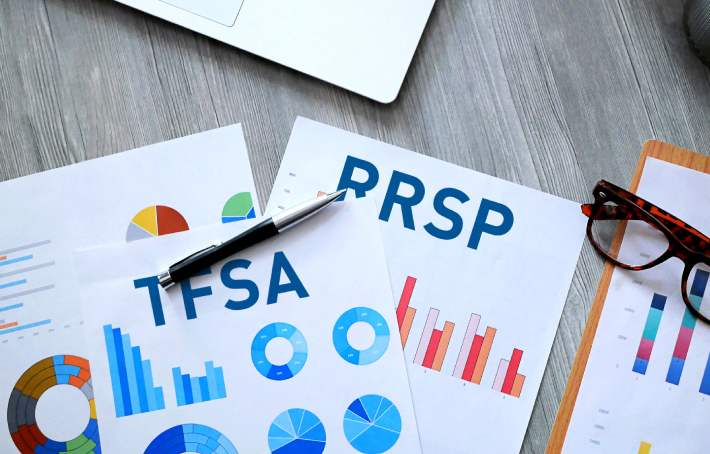My advice • December 18, 2019
modified on February 13, 2024
Investment Series - Investment Vehicle: RRSP or TFSA?
Here are a few examples to help you out

 Pierre Comeau
Pierre ComeauExpert Advisor, Wealth Management
and Financial Planner LBCFS
In answer to our question in the last LBC News, many of you said that you didn’t know the difference between an RRSP and a TFSA. We therefore decided to write an article on this topic.
For many families, the Government of Quebec’s announcement on November 7 came as good news, as the amounts they receive in family allowances will be increased by an average of $750 to $1,500 as of January 2020. Wondering what to do with those extra funds? Investing it would be a great idea, but where? In your RRSP or your TFSA? Let’s look at your options.
RRSP: Think long term
As its name suggests, the Registered Retirement Savings Plan (RRSP) is an amount that you set aside for retirement. Anyone who has earned eligible income in the previous year may contribute to it up to a set limit. You can also use an RRSP for short- and medium-term needs, such as buying your first home or going back to school. Its main benefit is tax deferral. For example, let’s look at an employee whose employer withholds tax on their paychecks; if they invest in their RRSP, that amount will not be taxable and they could receive a refund equivalent to the excess tax collected. Better yet, all returns on the money invested will also be tax free until it’s withdrawn.
In addition, an RRSP enables you to adjust your taxable income. By reducing your income through RRSP contributions, you can benefit more from income-based government programs, such as child care expenses or GST and QST reimbursements. In short, the higher your income, the better an RRSP is for you at the tax level. Your tax bracket is thus much higher in your working years than when you retire.
TFSA: No taxes to pay
The tax-free savings account, or TFSA, enables you to invest without having to pay tax on that amount’s returns. Launched in 2009, this savings vehicle is quite interesting. You pay no tax on the capital invested in your TFSA, its returns, or any funds you withdraw from it. However, unlike RRSP contributions, TFSA contributions are not tax deductible. You could very well save part of your nest egg or emergency funds in it. A TFSA account is also an effective way to save for retirement. Note: While you can transfer any amount invested into a TFSA to your RRSP, you can only do the reverse in specific situations.
When should you choose one over the other?
Generally, when your work income is higher than the income you want at retirement, an RRSP is the most attractive option. It’s also your best choice if you’re planning to buy your first home, or you or your partner would like to go back to school. If you don’t know what the future holds and have a good handle over your debts and emergency funds, a TFSA would be a better option. The same applies if you expect your retirement tax bracket to be high. Of course, there are many exceptions, so it’s wise to meet with your advisor to get a full financial analysis and find out which option is right for you.
+ Legal Notices
New investment accounts are offered by LBC Financial Services Inc. (LBCFS). Mutual funds are distributed by LBCFS. The Financial Planning service is offered by LBCFS. LBCFS is a wholly-owned subsidiary of Laurentian Bank and a legal entity distinct from Laurentian Bank and Mackenzie Investments. Mutual funds offered by LBCFS are part of the Laurentian Bank Group of Funds managed by Mackenzie Investments. A Laurentian Bank advisor is also a licensed LBCFS Mutual Fund Representative.
The articles on this website are for information purposes only. They do not create any legal or contractual obligation for Laurentian Bank and its subsidiaries.
These articles do not constitute financial, accounting, legal or tax-related advice and should not be used for such purposes. Laurentian Bank and its subsidiaries may not be held liable for any damage you may incur as part of such use. Please contact your advisor or any other independent professionals, who will advise you as needed.
The articles may contain hyperlinks leading to external sites that are not managed by LBC. LBC cannot be held liable for the content of such external sites or the damage that may result from their use.
Prior written consent from the Laurentian Bank of Canada is required for any reproduction, retransmission, publication or other use, in whole or in part, of the contents of this site.








